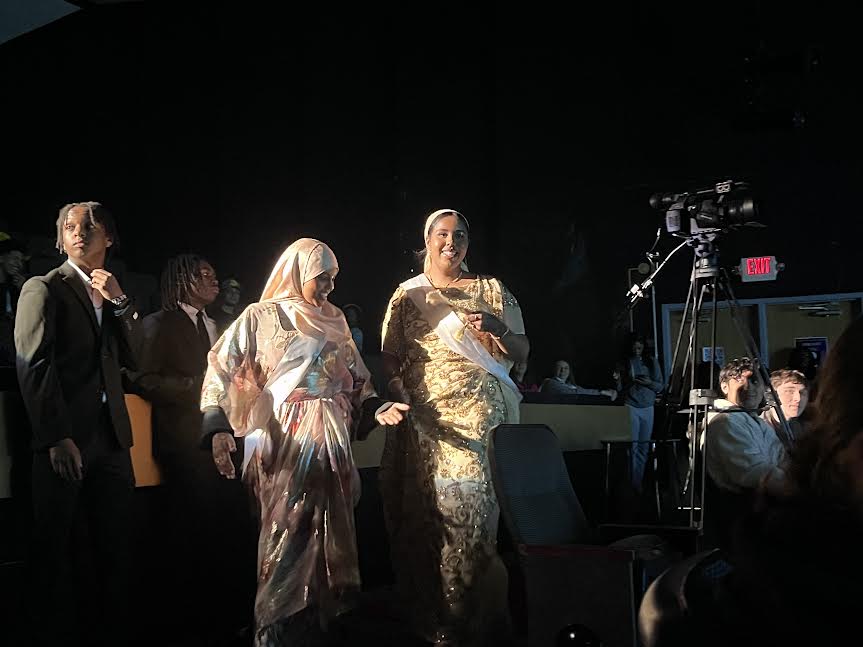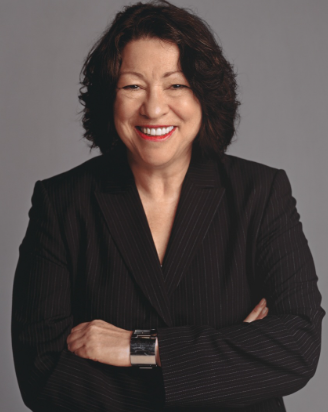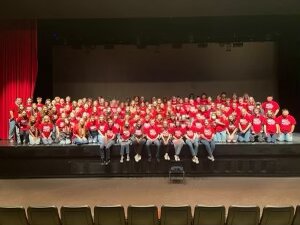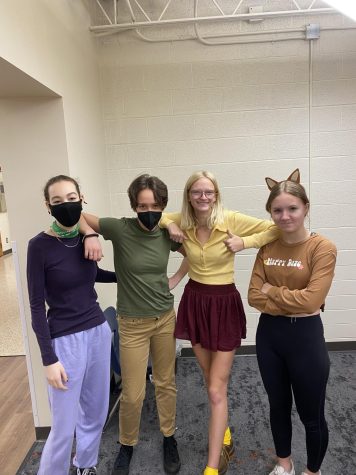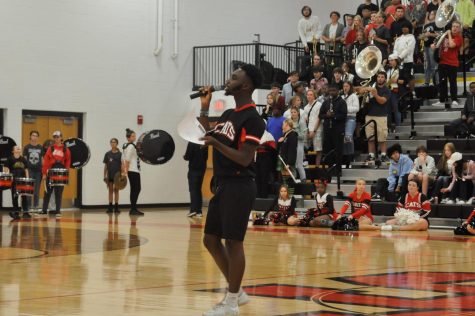Dia de los Muertos: A Remembrance of Lost Loved Ones
November 7, 2018
Dia de los Muertos, a Spanish holiday, is a festive remembrance of family and friends who have passed. Family is an essential part of Hispanic culture and many of Westerville South students share these values.
“Family is huge for Hispanics; family is just one of the most important things you can have, you know. Just having it is such a blessing, ” Junior Anyssa Jones said.
Dia de los Muertos, or “Day of the Dead,” begins on Oct. 31 and lasts through Nov. 2.
Dia de los Muertos is celebrated by some Westerville South classes and students, but not everyone knows the history behind this momentous holiday. Spanish teacher David Boroff sheds light on the history of the holiday.
“It’s really a combination of holidays on the Catholic calendar that Christopher Columbus and the Catholic King and Queen of Spain brought to the Americas and the pagan holidays that were already in place [in the Americas]. The Catholics had what they called All Hallows Eve, which ended up becoming Halloween and that coincided with a pagan holiday where they [Latin Americans] celebrated the people that had come before them, their ancestors. Eventually these two coinciding holidays blended together.”
According to Senior Rosalind Fletcher, Dia de los Muertos has special meaning to everyone who celebrates it. It brings families together.
“To me, Dia de los Muertos just means celebrating my family that has passed on. Because instead of mourning their deaths, we celebrate their complete lives and what they stood for in our lives,” Fletcher said.
Jones added, “For me, Dia de los Muertos is something that is important. Instead of being sad, the celebrations are happy because they [passed relatives] are in peace.”
Many traditions are associated with the holiday, including: constructing altars, making ofrendas (offerings) to the dead, making or buying sugar skulls, holding graveside vigils, baking and eating pan de muerto (“dead bread,” a type of sweet roll), tellings stories about the dead, and gathering as a family to eat big meals and enjoy each other’s company.
Junior Johamalie Vazquez shared her family’s traditions. “We usually have a big celebration and gather with family and have a big dinner, and sometimes we dress up and play music,” Vazquez said.
Sophomore Itzia Centeno said, “My dad puts up pictures of our family members that died and we make the favorite foods of our passed relatives.”
South’s Spanish teachers are also getting festive with their celebrations. Senora Matney is going to a Hispanic bakery and bringing in pan de muerto for her Spanish classes.
Senora Conley is having her second year IB Spanish students make ofrendas on altars for friends or family members they’ve lost.
“They appreciate the Mexican perspective on death that is much more meaningful than the American outlook on death. It’s not scary,” said Senora Conley.
Dia de los Muertos is an important Spanish holiday that brings families together to celebrate loved ones who’ve passed, and reminds people to enjoy the time they spend with loved ones that are still here.


